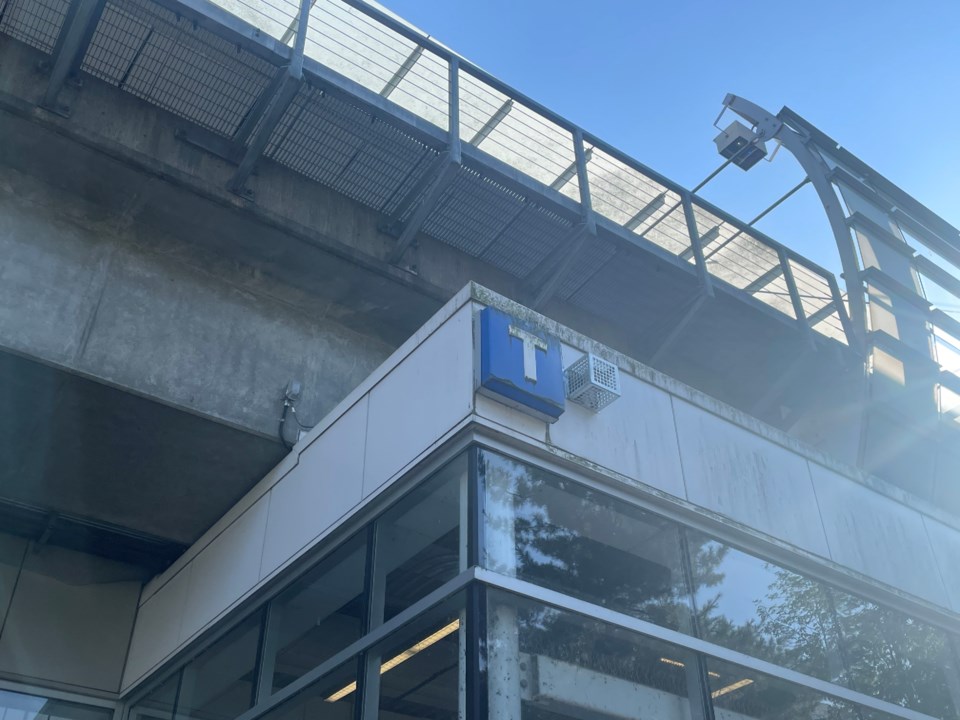A new "mosquito alarm" has been installed at one of Vancouver's SkyTrain stations, but it isn't meant to repel bloodthirsty pests.
The machine emits a high-frequency sound, similar to the buzz of a mosquito, as a way to discourage loitering and is typically directed at younger people, between 13 and 25 years old, who are able to hear the frequency when it is set to 17 Kilohertz.
When the machine is set to 8 Kilohertz, it can be heard by everyone.
The alarm was installed at Main Street Science World SkyTrain Station in March and has not been set up at any other SkyTrain station, says a TransLink spokesperson.
The alarm was tested several times but is currently inactive, according to TransLink.
Why is there a mosquito alarm at a Vancouver SkyTrain Station?
A TransLink spokesperson tells V.I.A. that the alarm was put in place because the transit authority "has received dozens of reports of disorderly conduct and criminal activity at the Main Street Science World SkyTrain station over recent months."
"In an effort to address this challenge and prevent gatherings at station entrances we have tested a device which emits a high-frequency noise to determine its effectiveness," they write in an email, noting that TransLink will consider all options to ensure the safety of transit riders and TransLink employees.
Locals call out sensory concerns, hostile architecture
Some people have spoken up to say they aren't in favour of the alarm.
While many point out that the mosquito alarm is another form of hostile architecture-- elements of public buildings and spaces intended to make difficult or prohibit loitering or sleeping in public-- others bring to light the impact the device has on people with noise sensitivities such as individuals diagnosed with autism or sensory processing disorder.
"It's like flashing lights for people who [are light sensitive or] photosensitive," one local says on Twitter. "No one thinks about the impact until someone is affected, by then it's too late."
Another chimes in with objections, tweeting: "Wow, way to make an entire space inaccessible for autistic and [Sensory Processing Disorder] disabled individuals."
"The sound is absolutely horrendous," another person adds. "I feel for all the people who use that station, the TransLink drivers, the tourists, the unhoused, and the wildlife that live in the park."
An alternative method
Similar efforts to deter loitering have been made by transit authorities and businesses in the U.S., such as playing loud music.
Earlier this year, A Los Angeles Metro Station blasted classical music and, similarly, a number of 7-Eleven stores have played opera music to deter loitering, including a Colorado Springs and Austin, Texas, location.
Closer to home, this spring a high-frequency sound device was installed outside a store in Victoria, with a similar aim to discourage youth from loitering.




